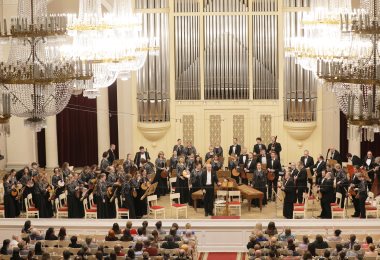Cultural Programme
09:00–17:00
Museums, exhibitions
Obukhov Factory Museum
In the building of the new museum and exhibition complex there is an interactive layout of the Obukhov plant of the late 19th and early 20th centuries, created by the joint efforts of the Museum of History of the Obukhov Plant and the founders of the legendary Grand Maket Rossiya project. The model layout represents the operation of the factory’s production facilities, the passers-by on the Shlisselburg road (now Obukhovskoy Oborony Avenue) going about their business, and the life of workers.
Forum participant badge grants access to the museum.
Please note that tours and other services shall be covered by the participant.
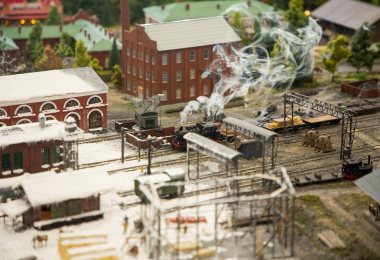
11:00–18:00
Museums, exhibitions
Sheremetev Palace
Since 1990, the Sheremetev Palace is one of the branches of the St. Petersburg State Museum of Theatre and Music. The palace houses the Museum of Music, which is based on Russia’s largest collection of musical instruments from around the world. Today, the rooms of the palace have items from the collections of the Count Sheremetev family on display, as well as paintings and applied art of the 18th and 19th centuries, which were acquired by the museum over the past 25 years.
Forum participant badge grants access to the museum.
Please note that tours and other services shall be covered by the participant.
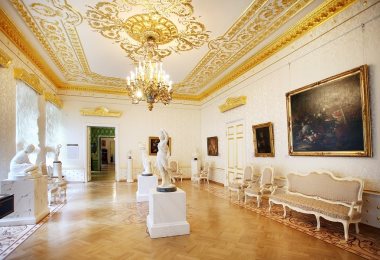
16:00–19:00
Special events
Opening Ceremony of the ‘Indigenous Peoples and Culinary Traditions of the Arctic’ Exhibition
*The word ‘eallu’ is Northern Sámi for ‘herd’, i.e. reindeer herd.
Event attendance is by organizer’s invitation only.
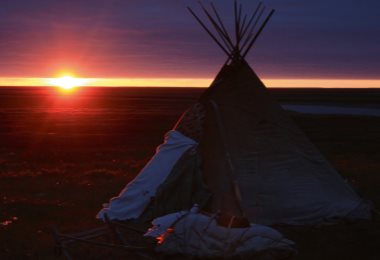
19:00–21:00
Special events
Gala concert ‘Music of the Arctic’
The concert dedicated to the opening of the International Arctic Forum 2019 will begin with a performance by the Northern Sinfonia orchestra conducted by Fabio Mastrangelo – one of the most decorated and well-known conductors who participates in many festivals and performances in Russia and abroad. The tremendous charm of the “Italian in Russia” brings many admirers around the world to the Northern Sinfonia shows. The orchestra’s repertoire is incredibly wide: from classical pieces to modern jazz.
Ethnic music band Ayarkhaan from Yakutia is Albina Degtyareva’s personal project. The group makes music that goes beyond the known genres and categories, and can be best described as a mystical act. Using only their own voices and khomus, Ayarkhaan immerse their audience into the amazingly picturesque world of wildlife by not only playing music, but also imitating the voices and sounds of wildlife: various birds, cranes, horse neighing, sound of the wind and heartbeat.
The repertoire of Arco ARTico – the string ensemble of the Sakha Republic (Yakutia) State Philharmonic – includes both classical and popular music, movie music themes, Argentine tango and pop hits from the past.
Vocal and dance group Kochevnik (Nomad) proudly represents Chukotka at various ethnic forums and festivals. Olit Tevlyanaut will join them for the Music Hall concert to demonstrate her wide range of colourful vocals and a combination of various performing techniques. Based on Olit’s love for Chukchi folk song, it is a blend of folk vocals, ethnic music, fusion, and mastery of mouth harp.
At 18:00 Premium package participants are invited for welcome cocktails before the concert.
Access to the concert for Forum participants is by badges.
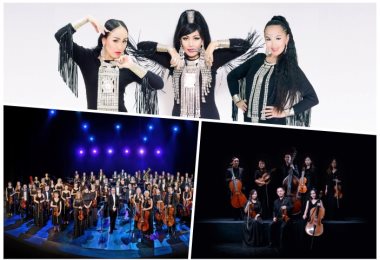
09:00–17:00
Museums, exhibitions
Obukhov Factory Museum
In the building of the new museum and exhibition complex there is an interactive layout of the Obukhov plant of the late 19th and early 20th centuries, created by the joint efforts of the Museum of History of the Obukhov Plant and the founders of the legendary Grand Maket Rossiya project. The model layout represents the operation of the factory’s production facilities, the passers-by on the Shlisselburg road (now Obukhovskoy Oborony Avenue) going about their business, and the life of workers.
Forum participant badge grants access to the museum.
Please note that tours and other services shall be covered by the participant.
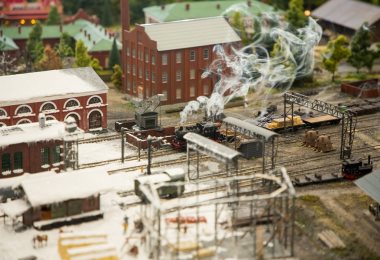
09:30–17:30
Museums, exhibitions
State Museum of Urban Sculpture (18th-century Necropolis, Masters of Arts Necropolis)
Masters of Arts Necropolis treasures tombstones of writers, musicians, artists of the 19th century, actors and theatre figures of the 19th–20th centuries: Mikhail Glinka, Modest Mussorgsky, Pyotr Tchaikovsky, Nikolay Karamzin, Ivan Krylov, Fyodor Dostoevsky, Alexander A. Ivanov, Pavel Fedotov, Ivan Shishkin, Arkhip Kuindzhi, Boris Kustodiev, Vera Komissarzhevskaya, Yuriy Yur'ev, Nikolay Cherkasov, Georgy Tovstonogov.
Forum participant badge grants access to the museum.
Please note that tours and other services shall be covered by the participant.
10:00–18:00
Museums, exhibitions
The Russian State Arctic and Antarctic Museum
Forum participant badge grants access to the museum.
Please note that tours and other services shall be covered by the participant.
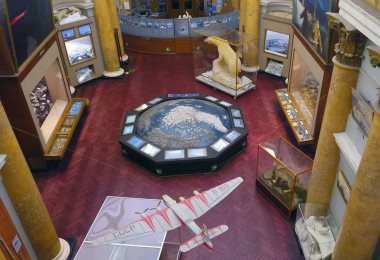
10:00–20:00
Museums, exhibitions
Historical Park ‘Russia – My History’
In addition to the multimedia exhibitions ‘The Rurikids’, ‘The Romanovs’, ‘From the Great Upheavals to the Great Victory’ and ‘From Victory in the Great Patriotic War until 2017’, the Park presents a regional exhibition ‘St. Petersburg. History of development’, which reflects the history of the city on the Neva river from its foundation to the present day.
Forum participant badge grants access to the museum.
Please note that tours and other services shall be covered by the participant.
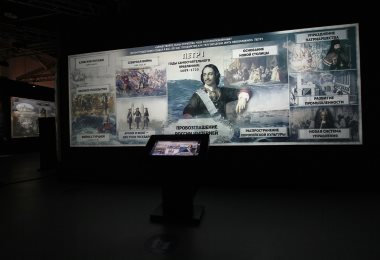
10:30–18:30
Museums, exhibitions
Anna Akhmatova Museum at the Fountain House
Forum participant badge grants access to the museum.
Please note that tours and other services shall be covered by the participant.
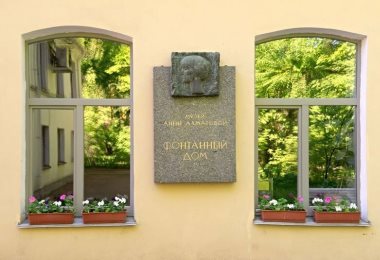
11:00–12:00
Arctic Cinema
Unknown Arctic Heroes International Arctic Project: ‘Nikolai Evegenov’
A meeting with the project’s artistic director, People’s Artist of the Russian Federation Alla Surikova, and the project’s author and producer, film director and member of the Russian Union of Cinematographers Boris Dvorkin, will be held during the presentation.
Attendance is free for all forum participants.
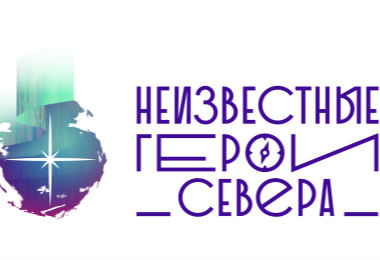
11:00–17:00
Museums, exhibitions
Exhibition: As I Walk Around the City
The ‘As I Walk Around the City’ Exhibition will show places, where a tourist would stop by during Soviet times: museums, theatres, coffee shops and, of course, stores. Visitors will get to see significant changes in the way the city looks now, learn about tourist trails that are no longer a must, as well as landmarks that no longer exist.
Forum participant badge grants access to the exhibition.
Please note that tours and other services shall be covered by the participant.
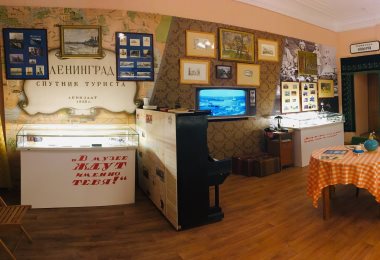
11:00–20:00
Museums, exhibitions
‘Life after Life’ Exhibition
Forum participant badge grants access to the exhibition.
Please note that tours and other services shall be covered by the participant.
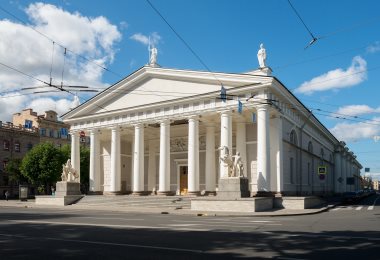
11:00–17:00
Museums, exhibitions
Exhibition: City of Masters: Trade and Tradesmen
Organizers set this exhibition up to remind its visitors that our beautiful city owes it to the efforts of many craftsmen that built and decorated palaces along with homes for ordinary residents of St. Petersburg. It will also tell about various aspects of their everyday life.
Forum participant badge grants access to the exhibition.
Please note that tours and other services shall be covered by the participant.
11:00–17:00
Museums, exhibitions
The Exhibition ‘The Ancient History of Neva Lands’
Forum participant badge grants access to the exhibition.
Please note that tours and other services shall be covered by the participant.
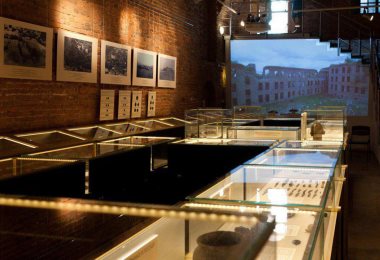
11:00–17:00
Museums, exhibitions
The Exhibition ‘Collection of the State Museum of the History of St. Petersburg. The Best.’
Forum participant badge grants access to the exhibition.
Please note that tours and other services shall be covered by the participant.
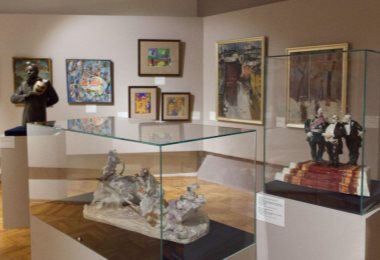
11:00–18:00
Museums, exhibitions
The Exhibition ‘Russian Icon of the 17th–early 20th Centuries, Collection by the State Museum of the History of St. Petersburg’
The exhibition showcases the works of masters of St. Petersburg, Moscow, Palekh, Kholuy, Mstera, icon painters of the Russian North and the metallurgical Ural. These are cathedral images for iconostases, large pillar icons, and some chamber works, icons for private prayer.
Forum participant badge grants access to the exhibition.
Please note that tours and other services shall be covered by the participant.

11:00–17:00
Museums, exhibitions
The Exhibition ‘Komsomol answered YES!’
Forum participant badge grants access to the exhibition.
Please note that tours and other services shall be covered by the participant.
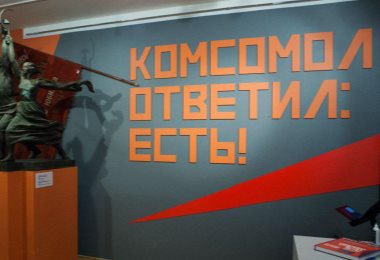
11:00–17:00
Museums, exhibitions
Museum of Science and Technology
Forum participant badge grants access to the museum.
Please note that tours and other services shall be covered by the participant.
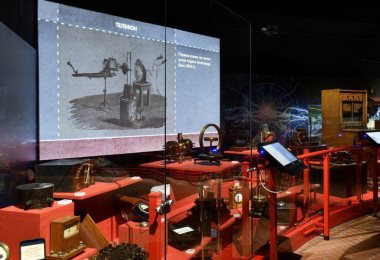
11:00–18:00
Museums, exhibitions
The Exhibition ‘Ricordo di Roma (Memory of Rome)’
Forum participant badge grants access to the exhibition.
Please note that tours and other services shall be covered by the participant.
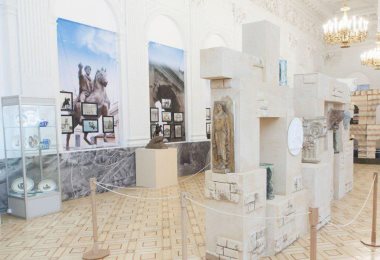
11:00–18:00
Museums, exhibitions
Dostoevsky Museum
Forum participant badge grants access to the museum.
Please note that tours and other services shall be covered by the participant.
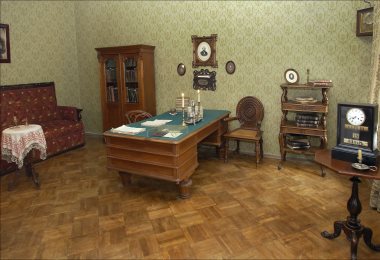
11:30–12:00
Special events
Presentation of the Russian Arctic Library
The presentation will include the story of the library's creation and the most memorable snippets from the history of Arctic exploration, proof positive of the fact that the North made Russia a great country: “There is this great country, with a vast history, and now its own Arctic library.” A excursion of the library will conclude the presentation.
Attendance is free for all forum participants.
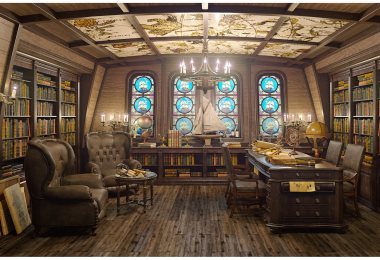
12:00–14:00
Arctic Cinema
Screening of the feature film The Lord Eagle (Movie Marathon ARCTIC OPEN)
Forum participants will see two award-winning films of the 2nd Arctic Countries Film Festival ARCTIC OPEN, which took place in Arkhangelsk on 6–9 December 2018: the documentary film ‘The Great Northern Route’ (directed by Leonid Kruglov) and the feature film ‘The Lord Eagle’ (produced by SakhaFilm, directed by Eduard Novikov, winner of the Golden St. George award).
The directors will personally present their films. After watching the movie, the audience can discuss them with the authors.
Attendance is free for all forum participants.
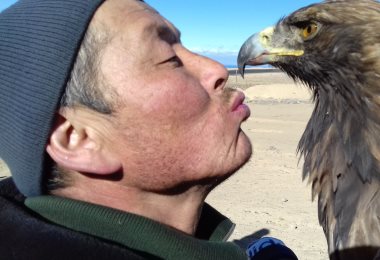
12:00–18:00
Museums, exhibitions
The Exhibition of Massimo Ghiotti ‘Humanity of the Metal’ (Italy)
New works and new mediums of expression define the exposition in the State Museum of Urban Sculpture in St. Petersburg. The artist’s creative process shifts to the metal, the sculptor’s favourite medium since his first works of the 70s.
Forum participant badge grants access to the exhibition.
Please note that tours and other services shall be covered by the participant.
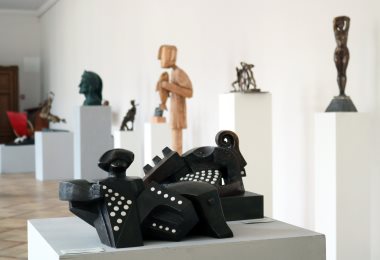
14:00–14:20
Arctic Cinema
Presentation of the Permafrost Dinosaurs project and the Day of Russia Festival ‘Interethnic Forum Meeting the Sun’
‘Interethnic Forum Meeting the Sun’ is a festival dedicated to the traditional rituals and festivities of the peoples of the North. It can serve as an example of meeting certain social and cultural challenges.
Attendance is free for all Forum participants.
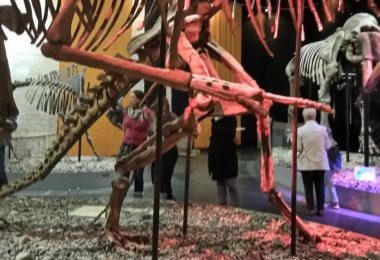
14:20–14:45
Arctic Cinema
Screening of a short film Boy and Lake
Prokopy Nogovitsyn, a teacher at the Oi village school in the Khangalassky ulus and a local historian, palaeontologist, archaeologist, and ethnographer, created several short visual poems where the world is shown through the eyes of a child. The most famous of them is Boy and Lake, included in the Berlinale programme. The film is based on the work of Platon Oyunsky, Yakut’s literary classic. A boy comes to a distant lake, removes snow from a small patch, cuts through thick ice crust and pulls out his scarce catch. With its reproduction of a real act of work and gradual record of sub-ice fishing, the film feels both as a documentary and a genuine drama. Minimalism escalates into mystery. It seems that all the wide-open spaces of Siberia are condensed in a single point, and all the creative energy is concentrated in the nimble hands of a child.
Attendance is free for all Forum participants.
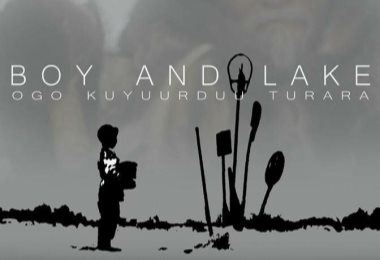
14:45–15:10
Arctic Cinema
Screening of a documentary short film The Sun behind the Arctic Circle
The film is dedicated to the routines of a nomadic kindergarten at the camp of reindeer herders in the Yamal Peninsula, as well as the two anthropologists living in a Nenets family for a year. As part of the 2015–2016 ethnographic expedition ‘Real People’ (that is a translation of the Nenets endonym: neney nenetsia), they set up an experimental group of preschoolers from families of private reindeer herders, and the “kindergarten” roamed along with the herds to the Kara Sea and back.
Attendance is free for all Forum participants.
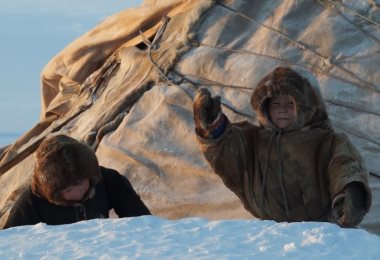
16:00–18:00
Arctic Cinema
Screening of the documentary film The Great Northern Route (Movie Marathon ARCTIC OPEN)
Forum participants will see two award-winning films of the 2nd Arctic Countries Film Festival ARCTIC OPEN, which took place in Arkhangelsk on 6–9 December 2018: the documentary film ‘The Great Northern Route’ (directed by Leonid Kruglov) and the feature film ‘The Lord Eagle’ (produced by SakhaFilm, directed by Eduard Novikov, winner of the Golden St. George award).
The directors will personally present their films. After watching the movie, the audience can discuss them with the authors.
Attendance is free for all forum participants.
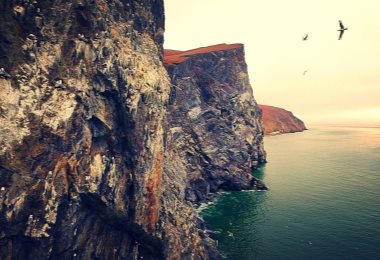
18:30–23:00
Theatrical performances, concerts
Opera: Die Frau ohne Schatten
Libretto by Hugo von Hofmannstahl
Performed in German (the performance will have synchronized Russian and English subtitles).
Die Frau ohne Schatten is a philosophic parable. It’s moral is impossibility of overriding somebody else’s happiness in pursuit of your own. One needs to preserve their soul as the most precious thing they have.
Access to this event is by ticket. Participants can order tickets in their personal web office.
Please note that participants shall cover the cost of the tickets.
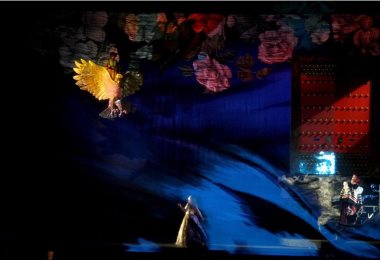
19:00–21:00
Arctic Cinema
Screening of the feature film The Lord Eagle (Movie Marathon ARCTIC OPEN)
Forum participants will see two award-winning films of the 2nd Arctic Countries Film Festival ARCTIC OPEN, which took place in Arkhangelsk on 6–9 December 2018: the documentary film ‘The Great Northern Route’ (directed by Leonid Kruglov) and the feature film ‘The Lord Eagle’ (produced by SakhaFilm, directed by Eduard Novikov, winner of the Golden St. George award).
The directors will personally present their films. After watching the movie, the audience can discuss them with the authors.
The country’s oldest motion picture studio Lenfilm will screen the ‘The Lord Eagle’.
Access for Forum participants is by badge.
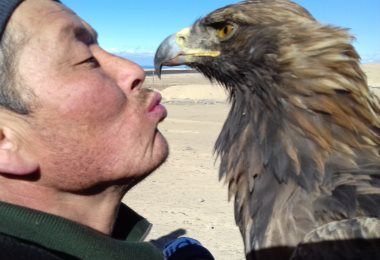
19:00–20:30
Theatrical performances, concerts
Jürgen Essl. An evening of organ music
Johann Sebastian Bach
Wolfgang Amadeus Mozart
César Franck
Franz Liszt
Jürgen Essl
Access to this event is by ticket. Participants can order tickets in their personal web office.
Please note that participants shall cover the cost of the tickets.
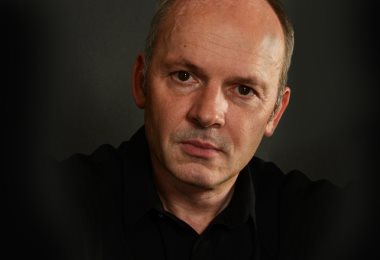
19:00–20:50
Theatrical performances, concerts
Pagliacci. Opera
Pagliacci combines a simple plot and a strong musical exquisiteness, which is a recipe for its global success. Vagabond artists’ moveable feast goes wrong: a husband kills his unfaithful wife and her lover. Until the very last moment, the audience is oblivious to other tragedies outside the purely theatrical one.
Access to this event is by ticket. Participants can order tickets in their personal web office.
Please note that participants shall cover the cost of the tickets.
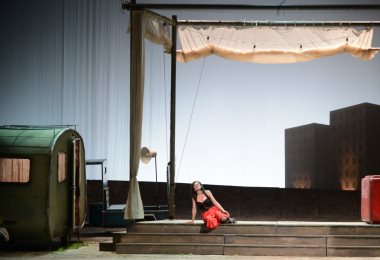
19:00–22:00
Theatrical performances, concerts
Die Bajadere. Operetta
Access to this event is by ticket. Participants can order tickets in their personal web office.
Please note that participants shall cover the cost of the tickets.
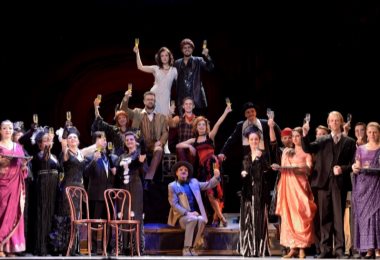
19:30–21:30
Theatrical performances, concerts
Evening of one-act ballets
A Carrousel
Choreographic piece for ballet and chorus.
Idea, staging: Alexander Omar.
Stage and costume design: Alexandra Leonidova.
The performance features Koleso folk band and the actor Vladimir Krylov.
The Prodigal Son
Ballet in one act.
Music: Camille Saint-Saëns.
Choreography, stage design: Ivan Vasiliev.
Costume Design: Alexandra Leonidova.
Access to this event is by ticket. Participants can order tickets in their personal web office.
Please note that participants shall cover the cost of the tickets.
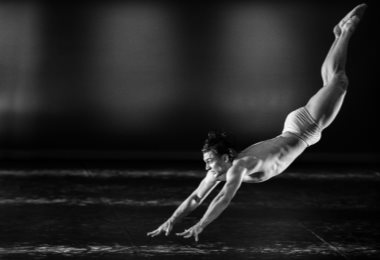
19:30–21:00
Theatrical performances, concerts
Chopiniana. Michel Fokine’s ballets
- Le Spectre de la rose
- The Swan
- Schéhérazade
Music by Frédéric Chopin
Scenario and choreography: Michel Fokine
Access to this event is by ticket. Participants can order tickets in their personal web office.
Please note that participants shall cover the cost of the tickets.
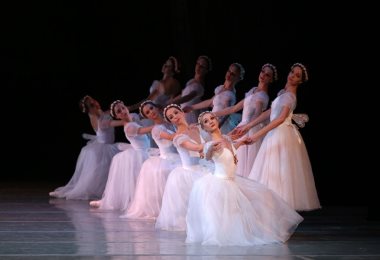
09:00–17:00
Museums, exhibitions
Obukhov Factory Museum
In the building of the new museum and exhibition complex there is an interactive layout of the Obukhov plant of the late 19th and early 20th centuries, created by the joint efforts of the Museum of History of the Obukhov Plant and the founders of the legendary Grand Maket Rossiya project. The model layout represents the operation of the factory’s production facilities, the passers-by on the Shlisselburg road (now Obukhovskoy Oborony Avenue) going about their business, and the life of workers.
Forum participant badge grants access to the museum.
Please note that tours and other services shall be covered by the participant.
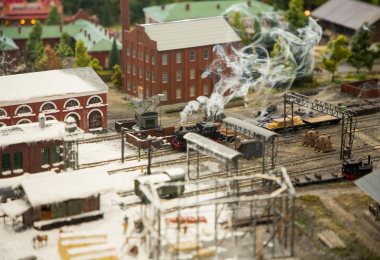
09:30–17:30
Museums, exhibitions
State Museum of Urban Sculpture (18th-century Necropolis, Masters of Arts Necropolis)
Masters of Arts Necropolis treasures tombstones of writers, musicians, artists of the 19th century, actors and theatre figures of the 19th–20th centuries: Mikhail Glinka, Modest Mussorgsky, Pyotr Tchaikovsky, Nikolay Karamzin, Ivan Krylov, Fyodor Dostoevsky, Alexander A. Ivanov, Pavel Fedotov, Ivan Shishkin, Arkhip Kuindzhi, Boris Kustodiev, Vera Komissarzhevskaya, Yuriy Yur'ev, Nikolay Cherkasov, Georgy Tovstonogov.
Forum participant badge grants access to the museum.
Please note that tours and other services shall be covered by the participant.
10:00–20:00
Museums, exhibitions
Historical Park ‘Russia – My History’
In addition to the multimedia exhibitions ‘The Rurikids’, ‘The Romanovs’, ‘From the Great Upheavals to the Great Victory’ and ‘From Victory in the Great Patriotic War until 2017’, the Park presents a regional exhibition ‘St. Petersburg. History of development’, which reflects the history of the city on the Neva river from its foundation to the present day.
Forum participant badge grants access to the museum.
Please note that tours and other services shall be covered by the participant.
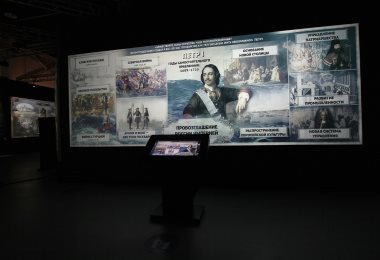
10:00–18:00
Museums, exhibitions
The Russian State Arctic and Antarctic Museum
Forum participant badge grants access to the museum.
Please note that tours and other services shall be covered by the participant.
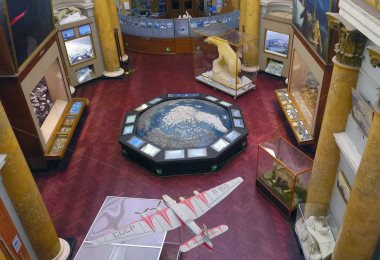
11:00–12:00
Arctic Cinema
Screening of a documentary short film Post Horse
Awards:
1st International Film Festival of Environmental Films Zolotoy Vityaz. Recognition ‘For the poetic image of a child’s soul’.
9th International Documentary Film Festival Flahertiana. Audience Award in the Russian Flahertiana programme.
Recognition at the Festival of Nations, Austria.
The film will be presented by its author, Andrei Golovnev, Director of the Peter the Great Museum of Anthropology and Ethnography.
Attendance is free for all Forum participants.
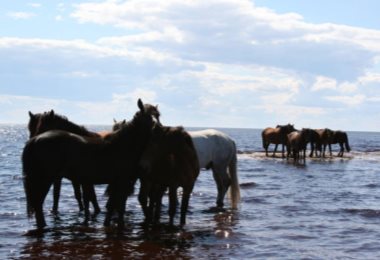
11:00–17:00
Museums, exhibitions
Exhibition: City of Masters: Trade and Tradesmen
Organizers set this exhibition up to remind its visitors that our beautiful city owes it to the efforts of many craftsmen that built and decorated palaces along with homes for ordinary residents of St. Petersburg. It will also tell about various aspects of their everyday life.
Forum participant badge grants access to the exhibition.
Please note that tours and other services shall be covered by the participant.
11:00–21:00
Museums, exhibitions
‘Life after Life’ Exhibition
Forum participant badge grants access to the exhibition.
Please note that tours and other services shall be covered by the participant.
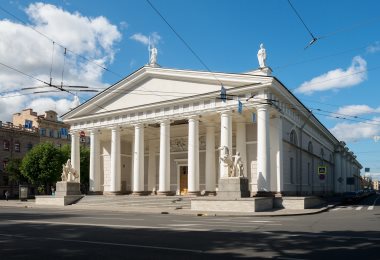
11:00–17:00
Museums, exhibitions
Exhibition: As I Walk Around the City
The ‘As I Walk Around the City’ Exhibition will show places, where a tourist would stop by during Soviet times: museums, theatres, coffee shops and, of course, stores. Visitors will get to see significant changes in the way the city looks now, learn about tourist trails that are no longer a must, as well as landmarks that no longer exist.
Forum participant badge grants access to the exhibition.
Please note that tours and other services shall be covered by the participant.
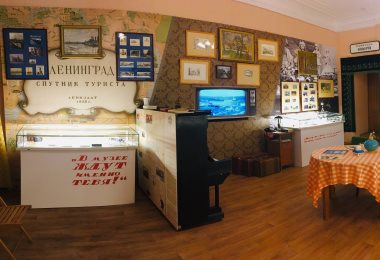
11:00–21:00
Museums, exhibitions
Legendary Icebreaker Krasin welcomes visitors
Tours start every hour as enough people turn up to form a group. The last tour starts at 20:00.
Access for Forum participants is by badge.
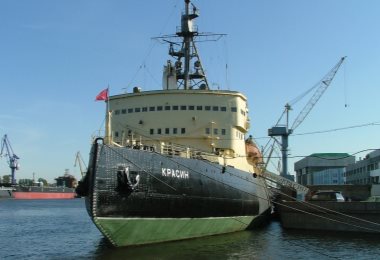
12:00–13:00
Arctic Cinema
Screening of WWF Russia
An innovative documentary series which premiered on 5 April 2019, Our Planet is the result of four years of collaboration between Netflix, Silverback Films and WWF. The series reveals the wonders of the Earth, the rare animals and the amazing beauty of wildlife, still remaining on our planet despite the threat to its existence.
The film is shown in English.
Attendance is free for all Forum participants.
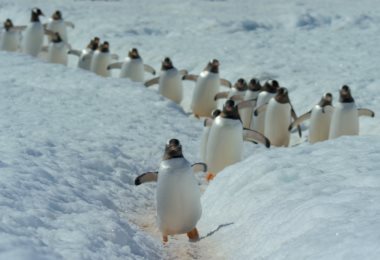
12:00–18:00
Museums, exhibitions
The Exhibition of Massimo Ghiotti ‘Humanity of the Metal’ (Italy)
New works and new mediums of expression define the exposition in the State Museum of Urban Sculpture in St. Petersburg. The artist’s creative process shifts to the metal, the sculptor’s favourite medium since his first works of the 70s.
Forum participant badge grants access to the exhibition.
Please note that tours and other services shall be covered by the participant.
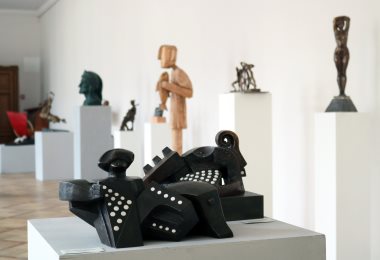
12:00–20:00
Museums, exhibitions
Anna Akhmatova Museum at the Fountain House
Forum participant badge grants access to the museum.
Please note that tours and other services shall be covered by the participant.
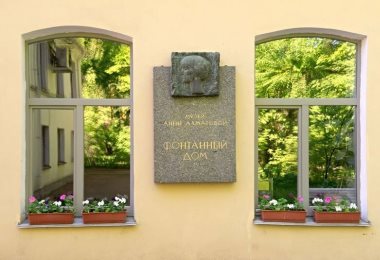
12:00–20:00
Museums, exhibitions
The Exhibition ‘To Self and Out Loud’
Forum participant badge grants access to the exhibition.
Please note that tours and other services shall be covered by the participant.
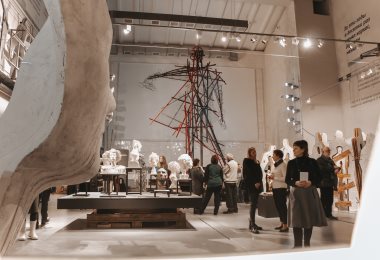
13:00–15:00
Arctic Cinema
Screening of a documentary film The Tundra Book: A Tale of Vukvukai, The Little Rock
This is a story of the mighty and wise old man Vukvukai, a real man of Tundra, who is inseparable from his reindeers. He has been living for 72 years in the depths of the Chukotka Peninsula in the Chaunskaya tundra. In the Chukchi language his name means “little rock”. Vukvukai’s crew grazes an enormous reindeer herd: more than 14,000 deer. Their life is constant struggle for survival and well-being in the most difficult weather conditions of Chaun-Chukotka. They deeply believe in the power of tradition, which helps them win in this struggle. They are protected by the ancient culture of Chukchi reindeer herders, and they live by it and preserve it. While this is so, their world remains unshakable. And that is Vukvukai’s truth.
Attendance is free for all Forum participants.
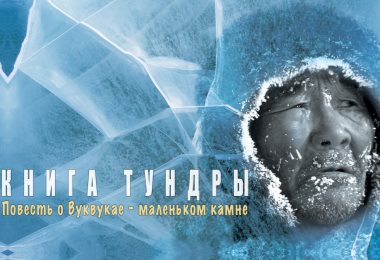
13:00–20:00
Museums, exhibitions
Dostoevsky Museum
Forum participant badge grants access to the museum.
Please note that tours and other services shall be covered by the participant.
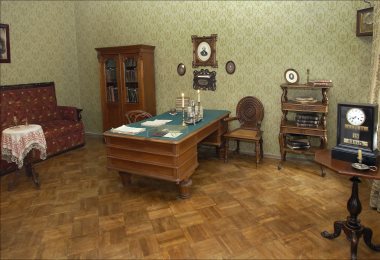
13:00–20:00
Museums, exhibitions
Exhibition 29th Element
Sheremetev Palace is one of the branches of the St. Petersburg State Museum of Theatre and Music. The rooms of the palace have items from the collections of the count Sheremetev family on display, as well as paintings and applied art of the 18th and 19th centuries, which were acquired by the museum over the past 25 years.
Forum participant badge grants access to the exhibition.
Please note that tours and other services shall be covered by the participant.
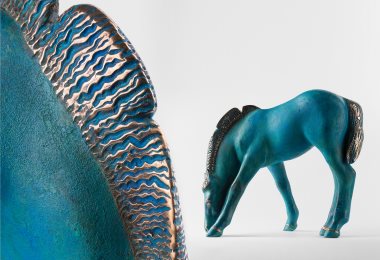
13:00–20:00
Museums, exhibitions
Fyodor Shalyapin Museum
Forum participant badge grants access to the museum.
Please note that tours and other services shall be covered by the participant.
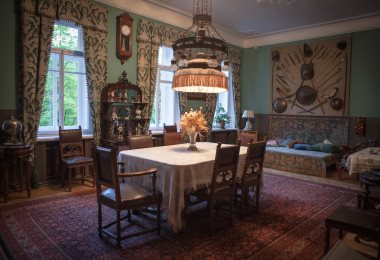
14:00–21:00
Museums, exhibitions
The Roerichs Museum and Institute
During the Forum, the museum offers its permanent display along with an anniversary exhibition commemorating Elena Roerich, the wife of Nikolai Roerich, as well as an exhibition of Russian and Indian artists called – The Temples of Souls.
Forum participant badge grants access to the museum.
Please note that tours and other services shall be covered by the participant.
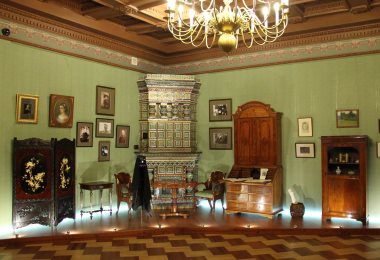
14:00–19:30
Museums, exhibitions
The Exhibition ‘Triumphs and Parades’
Visitors will learn that Peter the Great introduced the tradition of building temporary triumphal structures and holding parades after the crucial victories of the Russian army; that only some temporary wooden structures erected to meet the warriors were replaced by permanent arches, as happened, in fact, with the Narva Triumphal Arch.
Forum participant badge grants access to the exhibition.
Please note that tours and other services shall be covered by the participant.
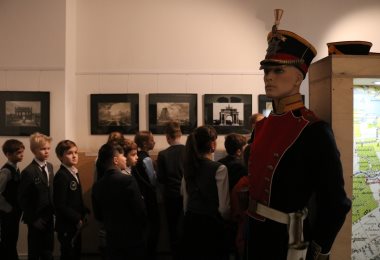
15:00–17:00
Arctic Cinema
Screening of the documentary film The Great Northern Route (Movie Marathon ARCTIC OPEN)
Forum participants will see two award-winning films of the 2nd Arctic Countries Film Festival ARCTIC OPEN, which took place in Arkhangelsk on 6–9 December 2018: the documentary film ‘The Great Northern Route’ (directed by Leonid Kruglov) and the feature film ‘The Lord Eagle’ (produced by SakhaFilm, directed by Eduard Novikov, winner of the Golden St. George award).
The country’s oldest motion picture studio Lenfilm will screen the ‘The Great Northern Route’.
Access for Forum participants is by badge.
16:00–17:00
Museums, exhibitions
The Exhibition ‘Arctic Nomads: The Art of Movement’
On 10 April at 16:00 the main visionary behind the project and author of the book Atlas of Nomadic Technologies, Director of the Kunstkamera Andrei Golovnev will take forum guests and participants on a special tour of the exhibition. The tour will be led in Russian and in English.
Participants must register for the event in advance through their personal web office.
18:00–22:30
Theatrical performances, concerts
Ruslan and Lyudmila. Opera
Alexander Pushkin’s fairy-tale has been staged numerous times, both in Russia and abroad. However, its performance by the Mariinsky Theatre is still the brightest, the most renowned and exciting for the audience. The cornerstone of the story both in the book and in the opera is love, and if it is true love, nothing can stop it.
Access to this event is by ticket. Participants can order tickets in their personal web office.
Please note that participants shall cover the cost of the tickets.
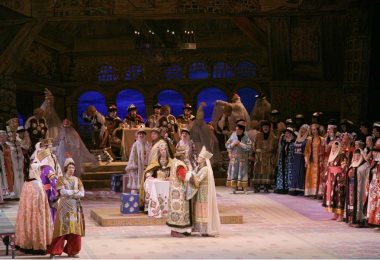
19:00–20:30
Theatrical performances, concerts
Concert of the Mariinsky Orchestra
- Richard Wagner
- Hector Berlioz
- Maurice Ravel
- Camille Saint-Saëns
Conductor: Emmanuel Villaume
Access to this event is by ticket. Participants can order tickets in their personal web office.
Please note that participants shall cover the cost of the tickets.
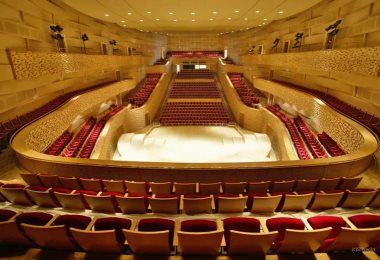
19:00–21:45
Theatrical performances, concerts
La Fille mal gardée. Ballet
Access to this event is by ticket. Participants can order tickets in their personal web office.
Please note that participants shall cover the cost of the tickets.
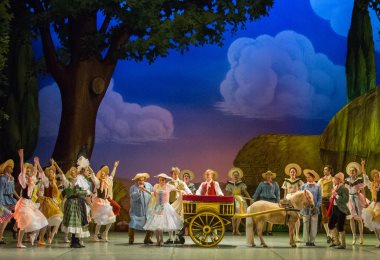
19:00–22:15
Theatrical performances, concerts
Rigoletto. Opera
This performance was nominated for the Golden Mask (the Russian National Theatre Award).
Yuri Alexandrov gets rid of all the clichés that became part of Verdi’s hit over the years of its existence. The main motif of this performance is the mask and the life’s gruesome carnival.
Verdi believed that Rigoletto’s plot based on Victor Hugo’s Le roi s’amuse was the best among those that were ever set to music. For the first time in history, the opera’s main character is a hunch-backed royal jester angry at the whole world. He mercilessly avenges everyone, who does not have a hunch.
Access to this event is by ticket. Participants can order tickets in their personal web office.
Please note that participants shall cover the cost of the tickets.
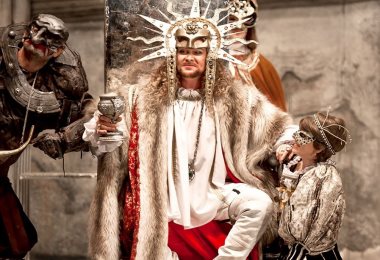
19:30–21:45
Theatrical performances, concerts
Konyok-Gorbunok (The Little Humpbacked Horse)
Access to this event is by ticket. Participants can order tickets in their personal web office.
Please note that participants shall cover the cost of the tickets.
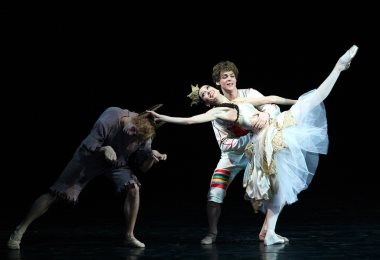
20:00–22:00
Theatrical performances, concerts
Waltz Evening
The programme includes pieces by Mikhail Glinka, Dmitri Shostakovich, Jean Sibelius, Johann Strauss II, Maurice Jarre, Gara Garayev.
Conductors – Dmitry Khokhlov, Evgeny Khokhlov
Access to this event is by ticket. Participants can order tickets in their personal web office.
Please note that participants shall cover the cost of the tickets.
